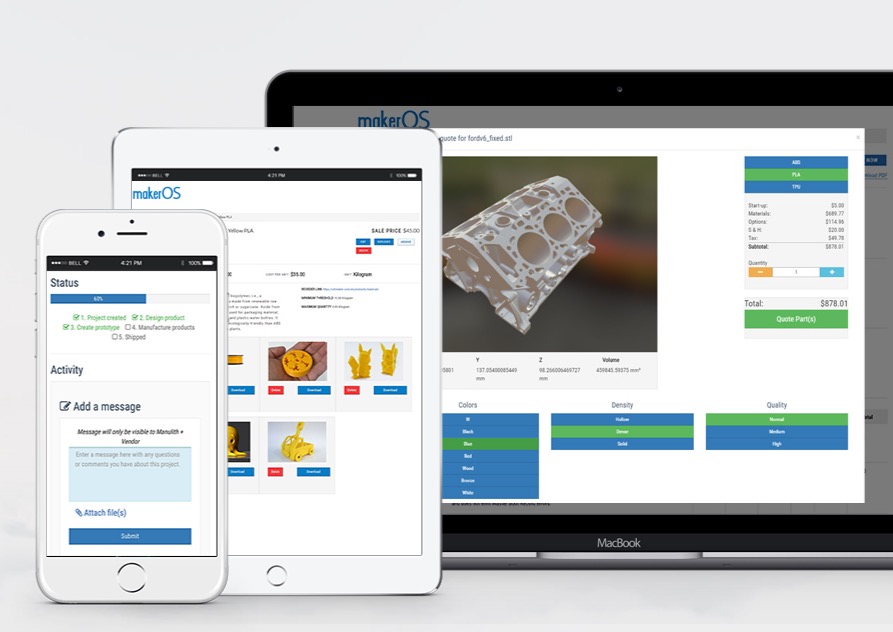
In the past year MakerOS has grown significantly and upgraded their system.
We detailed the MakerOS service about a year ago and explained how it works. To recap, it is a service that provides highly necessary management functions to a company (or individual) providing 3D print services to clients.
Using MakerOS you can create and track projects with clients, store and manage project files, invoice clients, view and fix 3D files, integrate with common messaging systems, product reports, integrate with banking and financial services and much more.
It’s essentially a full toolkit for managing a 3D design and print business.
Over the past year it seems that MakerOS has remade their website, making things appear cleaner and easier to use. But they’ve also introduced a new feature: product management. This enables a user to maintain a list of products to sell – and track inventory of them.
I think this is a very key feature because it transforms the platform from a “contract by contract” style into something that could be a lot more. Consider an artist, for example: the artist could design a work and produce a limited number of copies. These could be sold – and managed – through MakerOS to buyers. I don’t think MakerOS considered artists as their prime market when they launched MakerOS, but with this new feature, they certainly could be. And of course, there are other user types possible, too.
The service is actually free, at least during the beta testing period. You get access to the majority of the features (and there’s a lot of them) but pay only 10% + 0.75% on any financial transaction – when you issue an invoice to a client, for example.
Beyond the free service, MakerOS also offers a Premium service with a couple of very interesting features. There are three features in this scope:
Lead Generation provides access to a trained sales representative that can perform “heavy lifting” to identify potential new customers. The charge for this is USD$4 per lead, which could be quite profitable, considering what could be charged to a new client over the long haul.
Overflow Services enables linkage with other MakerOS participants for cases where a project exceeds you capacity. This enables you – and other parties – to take on work that you’d not otherwise consider. This is priced at USD$45 per month and up.
Finally, MakerOS can provide an “Operations Manager” that does basic project management on your behalf. This means generating reports, communication with customers and maintain inventory. And get this – they do it in a way that appears to be part of your own staff! It’s like a “white label” manager you can draw upon. This is priced at only USD$50 per month, far less than hiring your own manager.
What I find interesting about MakerOS’s premium services is that they all are essentially providing ways to extend your operation’s staff – without actually hiring real bodies. This can provide a huge deal of flexibility for an operation that’s finding success.
If you’re running your own 3D design and printing business, you should strongly consider looking at MakerOS, as apparently over 1,000 others have already discovered. It could automate a great deal of your work.
Via MakerOS

